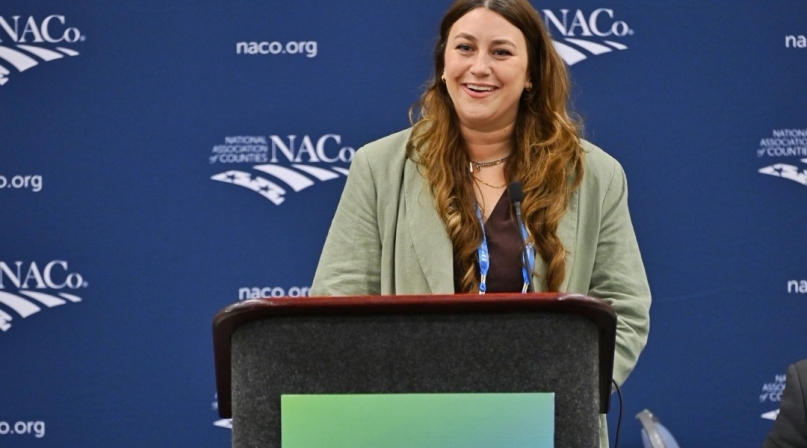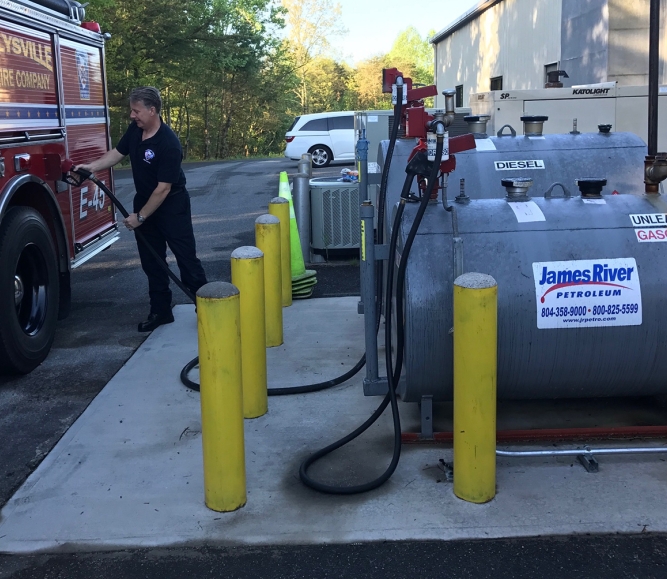Character strengths set rural counties up for entrepreneurship

Key Takeaways
Rural counties should not be written off as cradles of technology-driven entrepreneurship and the job growth that could follow in its wake.
When Molly Pyle left her small North Florida hometown, she headed for Silicon Valley. After years working in the tech industry, she’s now the director of tech-based economics at the Center on Rural Innovation and focused on making sure rural natives with an interest in technology, like her, don’t have to leave home to pursue a career.
She told the Rural Action Caucus July 12 that their counties are fertile ground for high-tech job development because of their rural character, not in spite of it. And to sweeten the deal, she noted that each new technology job typically leaders to three-to-five new jobs in ancillary industries.
“In the age of the internet, there should be no limit to where tech talent and visionary founders can thrive,” she said. “Rural folks have always been resilient and creative, figuring out how to do more with less. It’s just about distributing opportunities, access to capital, access to training, so that you can be in a position to launch that company on the farm or in the garage or go and get that job at the hospital that’s desperately in need of a tech worker.”
Even if residential broadband is not available, having a connection in a downtown area can help create an incubator. That may be preferable, in fact, offering the possibility of coworking spaces with nearby restaurants or housing. Ideally, Pyle said, a central location that is highly visible, where passersby can see people working inside, demonstrates that the region is capable of adapting to new industries and brings workers downtown.
“Those kinds of places are really important to shifting the culture and communities’ ideas about what is possible,” she said.
But before either broadband or visible workplaces come up, communities need local leadership committed to articulating and executing a vision for development, including elected officials, rural economic developers, information hub leaders and higher education professionals.
The Center on Rural Development, Pyle said, can offer outside help to encourage people to take the first steps, and some intermediate steps, toward pursuing entrepreneurship.
“You don’t need to be an MIT dropout or computer science major,” she said, all you need is your own expertise and an opening where technology can help propel it forward to meet a need.
The Center on Rural Innovation, Pyle said, is “not coming in to sell you a license to a playbook. We’re just an organization that tries to partner alongside rural leaders and determine the best strategy for your community based on your strength, your assets, what hasn’t worked in the past, and where you want to go.”
The access to capital, particularly startup funding, can be a challenge in rural areas, where the funding network undergirding technology hotspots has not taken root. The center manages a fund that invests in rural startups.
“Rural folks may not have as much access to ‘friends, family and fools,’ [a shorthand for technology investors in Silicon Valley] with deep, deep pockets, or they may be a little more rescue averse — they’re used to investing with real estate or oil and gas but I don’t know how they invest in a tech startup,” Pyle said.
But the hardest part of developing technological entrepreneurship in a region where it is not part of the culture and there’s no general familiarity with the process, is demystifying the process, she said. Supporting ideation workshops, in which entrepreneurs develop ideas and receive support in articulating the path ahead, is crucial to bridging the gap between the creative spark and the momentum a small business would need to grow. A Mayes County, Okla. town holds three-hour ideation workshops to bridge the divide between its technical and real estate capacity in its data center and industrial park and the rest of the community.
“It was just an awesome event where folks were coming out and gaining familiarity with the concepts. If you can just strip it all down to the bare bones, rural people can start to understand, ‘This is for me, I can do this.’ That's the goal.”
Related News

USDA streamlines foreign-owned agricultural lands transaction reporting with online portal
On January 22, the U.S. Department of Agriculture (USDA) launched a new online portal to streamline reporting transactions involving U.S. agricultural land by foreign entities.

CMS announces Rural Health Transformation Program funding
On December 29, the Centers for Medicare & Medicaid Services (CMS) announced $50 billion in awards over 5 years to all 50 states under the Rural Health Transformation Program.

Senators introduce bipartisan UPGRADE Act to support small and rural public water systems
On December 15, Sens. Lisa Blunt Rochester (D-Del.) and Roger Wicker (R-Miss.) introduced the Unincorporated Partnerships for Grant Resources, Assistance, and Drinking Water Enhancements (UPGRADE) Act (S. 3465), a bipartisan bill that would strengthen federal support for small public water systems and helps unincorporated communities access clean and affordable water.
County News
Turning Employees Into Entrepreneurs: Implementing Innovative Cost-Cutting Ideas

